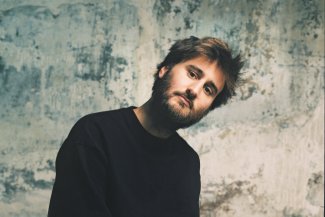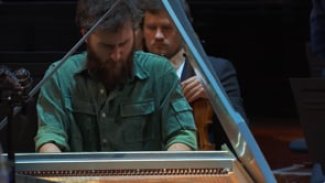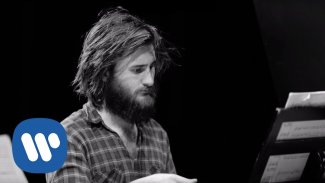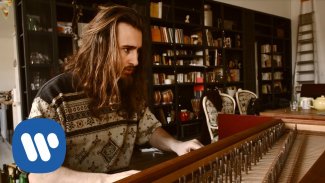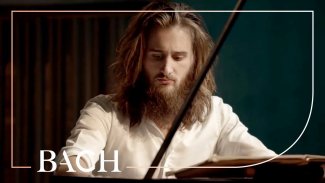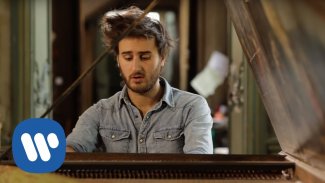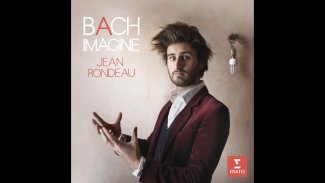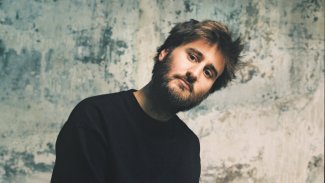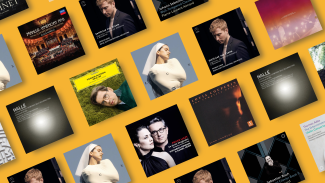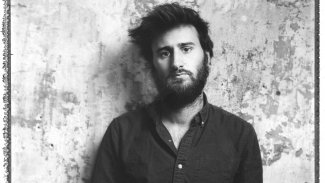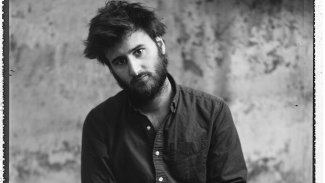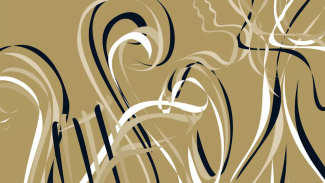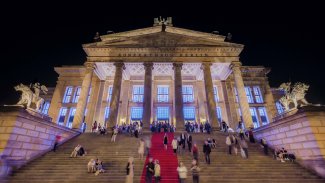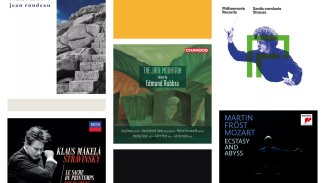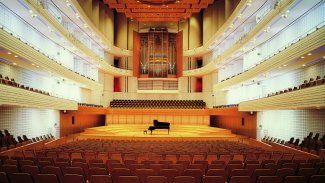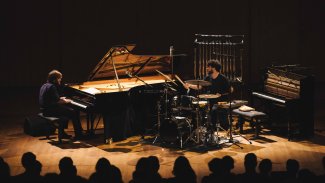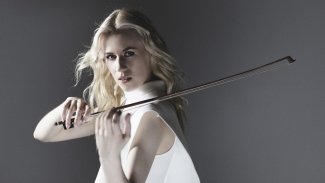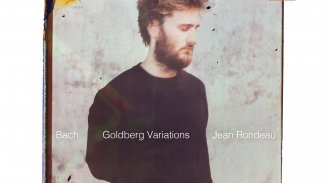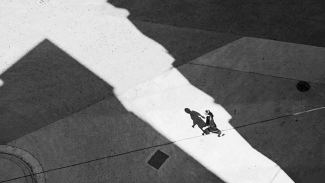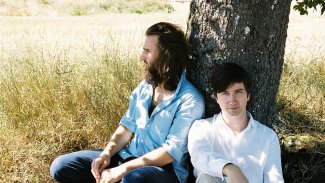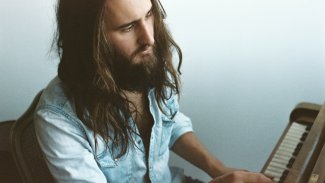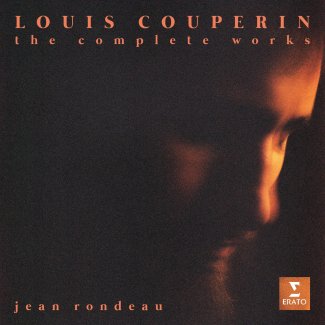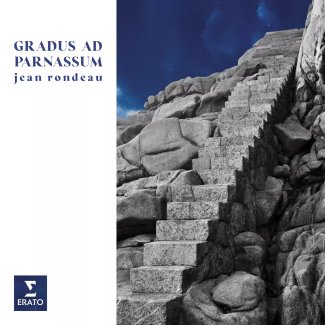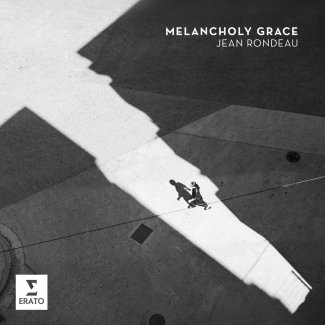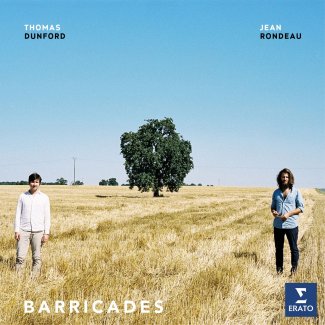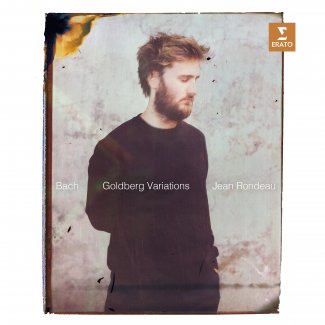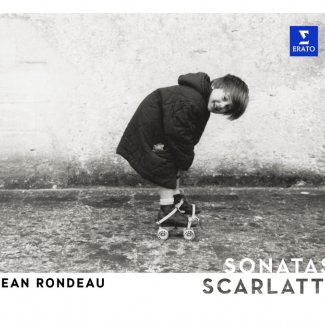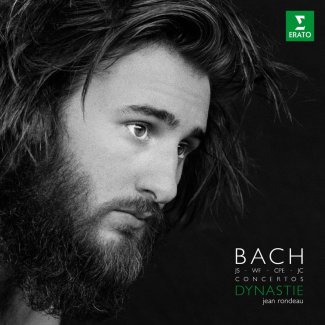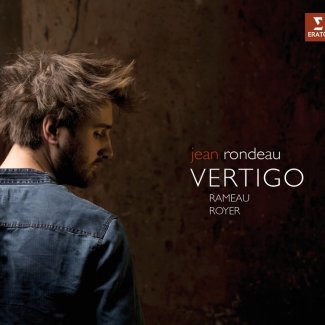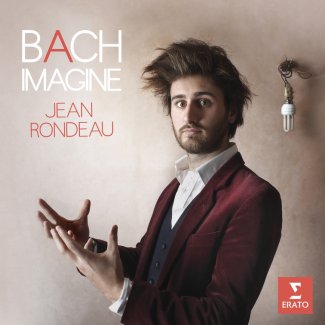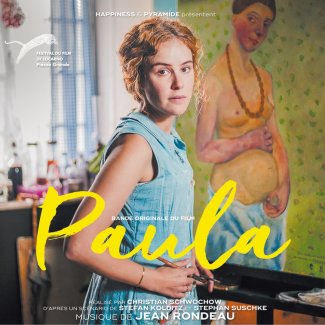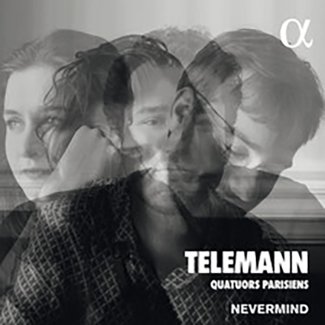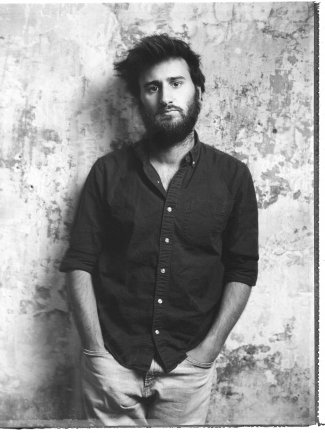
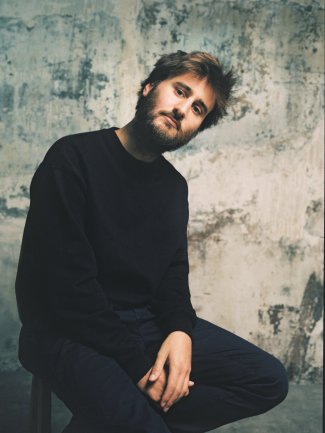
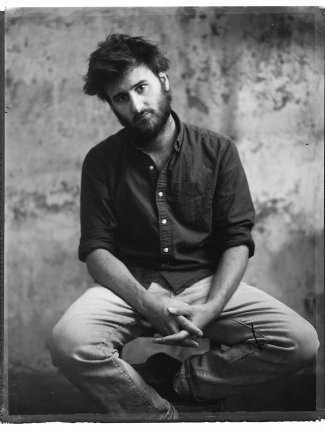
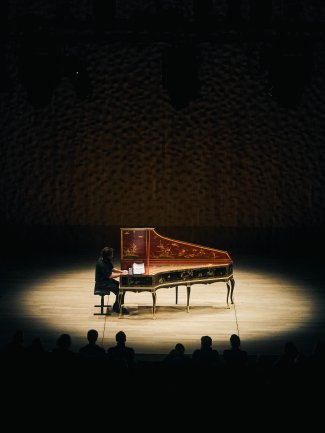
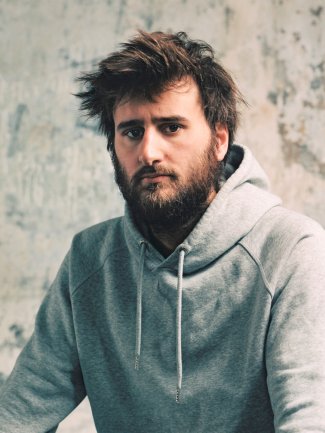
Jean Rondeau
Links
Download Assets
“He internalizes the music he plays so completely that any interpretive ambivalence or miscalculation is unthinkable. The sincerity and modesty of his delivery are the keys to its power”
(Washington Post)
Harpsichordist Jean Rondeau is a global ambassador for his instrument. Combining a profound respect for the past with boundary-pushing programming, Rondeau is at the forefront of the movement to bring the harpsichord into the twenty first century: as remarked by Gramophone magazine (2023), Rondeau teaches us “what a flexible and expressive medium the harpsichord can be – perhaps more than any of us had realised before”.
In 2025 – 26 Rondeau presents a groundbreaking project around the complete works of Louis Couperin. The culmination of years of intensive work, the project results in a 10CD + 1 DVD release (14 November, Warner Classics / Erato), multiple performances of Couperin’s works at venues including London’s Wigmore Hall, Hamburg’s Elbphilharmonie, Amsterdam’s Concertgebouw, a Japanese tour, and Couperin “marathons” at the Philharmonie de Paris and Utrecht Early Music Festival, where he will appear as artist in residence.
Show more
Following its successful launch in the 2024/25 season, Rondeau’s improvisatory programme Sisyphus will continue to feature prominently, with performances at De Bijloke (Gent), KKL Lucerne, and Klavier Festival Ruhr. Among his other ventures into the world of new music is UNDR, a co-composition with drummer Tancrède Kummer inspired by the Goldberg Variations which was described as “explosive” after its premiere at La Grange au Lac d’Evian in 2022. Further highlights of the 2025/26 season include a visit to Carnegie Hall with the Orchestra of St Luke’s and performances of the Goldberg Variations at Bold Tendencies (London), the London Festival of Baroque Music, Konzerthaus Dortmund, and Bachfest Schaffhausen. Rondeau will collaborate with the Ricercar Ensemble at Wigmore Hall and the Festival Oude Muziek Utrecht, Nicolas Altstaedt at the Dresden Music Festival, and will tour Europe with his baroque quartet, Nevermind, presenting their recent transcription of the Goldberg Variations.
Signed to the Warner Classics / Erato label, Rondeau has recorded a number of critically acclaimed albums. Gradus Ad Parnassum (2023) was hailed “a triumph” by Gramophone and described as “quietly audacious” by the New York Times, whilst his recording of the Goldberg Variations (2022) was described by Gramophone as “mesmerising” and earned a 5‑star review from BBC Music Magazine. Earlier releases include Imagine (2015), Vertigo (2016), Dynastie: Bach Concertos (2017), Scarlatti Sonatas (2018), Barricades (2020, recorded with Thomas Dunford) and Melancholy Grace (2021).
Rondeau studied harpsichord with Blandine Verlet at the Conservatoire National Supérieur de Musique in Paris, followed by training in continuo, organ, piano, jazz, improvisation, and conducting. He completed his musical education at the Guildhall School of Music and Drama in London. In 2012, Rondeau became one of the youngest performers ever to take First Prize at the International Harpsichord Competition in Bruges (MAfestival 2012), aged 21.
Contacts
Nina Apollonov Associate Director, Artist Management Ariane Levy-Künstler EOT Director | Director, Artist Management Isabella Thorneycroft Artist Coordinator
worldwide general management
Ariane Levy-Künstler EOT Director | Director, Artist Management Isabella Thorneycroft Artist Coordinator
Isabella Thorneycroft Artist Coordinator
worldwide general management
“He then got down to the Goldbergs, in an introspective performance that made me feel I was hearing them for the first time: revelation, depth and meaning where there had been none previously defined.”
“[Rondeau] brings a natural dynamism to the Baroque that feels as bold as it is respectful of tradition.[…] Rondeau’s hands, often a blur in motion, traversed the keyboard with a sensitivity that turned each piece into a living, breathing narrative. […] The concert was a rare, transformative experience.”
“Brilliant and surprising […]. Quite extraordinary.”
“A marvellous programme played with magical tact”
“A player of deep personality, […] revealing his profound musical intelligence and sensitivity”
“Quietly Audacious”
“It’s genius really”
“Rondeau pulls off a stroke of genius” ★★★★★
“A star on the harpsichord”
“Extraordinary”
“A star of the Baroque, flirting with jazz.”
“A prodigy, [Jean Rondeau] brings baroque music up to date […]. A bewitching interpretation of [J.S. Bach’s Goldberg Variations], which suspended time for 1h40; all without intermission, he keeps us spellbound from beginning to end.”
“The stupendous fluency of his fingers, the immense imagination of the ornaments that go far beyond the score, the stylistic certainty and simultaneous high, almost artistic virtuosity of his rendition […], all this makes Rondeau’s performance in the Königssaal a singular event.”
“[Jean Rondeau] approaches the famous opening aria with a small improvisation, which he endows with dazzling changes of lighting and register. Later, too, his playing is finely balanced, the basses, for example, sometimes contoured and slender, sometimes with a flatness that tends towards background noise. […] Probably the most beautiful, most splendid substitute for silence there is.”
“His mesmerising legato finger technique and specificity of articulation consistently hold interest, along with the subtle fluidity of his inner rhythm. […] there’s no doubt that Jean Rondeau realises his intentions with a distinctive and authoritative voice.”
“Jean Rondeau, a prominent figure of the nouvelle vague of harpsichordists, adopts a spacious approach to Bach’s inspired and masterly Variations. […] his tempos feel carefully considered and are well judged, and his articulation all that we should expect from an eloquently punctuated and inflected conversation.”
“We could not wish for a greater champion of his instrument.”
“Under Rondeau’s fingers, the harpsichord […] doesn’t just sing. It inhabits an impressive gamut from a dark bronze tone to crystalline upper ranges; individual notes left shimmering in the air or layered in complex, moving chords. Sometimes, it sounds like a delicately plucked lute or a harp; at other moments, almost like an organ – and played with pedals, surely, because how else can so many fugue lines be sustained at once? Rich, complex, fascinating, this late-Renaissance world is never austere.”
“Rondeau plays as if there were no epochs and centuries between us and then, one has the feeling that this music is just emerging — from the imagination, the feeling and the freedom of a performer who does not interpret, but creates himself. This is how it begins: Rondeau comes on stage, sits down, strikes a note and then again and again, and suddenly we are in the middle of it. One could rave for a long time about the fluency of the fingers, the playful figurations that Rondeau fishes out of the air, the suppleness of the lines, the naturalness of the movement with which one flows into the other.”
“Rondeau is a wizard. Forget grace, forget melancholy – this is brilliance.”
“Philadelphia Chamber Music Society recently hosted its first foray into the [solo harpsichord recital], presenting the exciting young keyboardist Jean Rondeau at Benjamin Franklin Hall, and his Bach-heavy recital proved a knockout.”
“Stimulating and exciting, Rondeau proves that this music can sound as vital today as it did when
penned.”
“For such a short work, Risser and Rondeau managed here to create a fascinating collection of effects, and in fact this proved to be a striking end to a highly impressive recital.”
“JS Bach’s BWV1056 in F minor has thoughtfulness, fun and flourish, followed by a reading of CPE Bach’s Wq23 Concerto in D minor which captures this stylistic wild child’s maverick choppiness with clipped, buoyant elegance.”
“[Rondeau’s] performance of Le vertigo is a thing of pugilistic wonder, flouncing around like an operatic diva succumbing to a hissy fit…he cuts a virtuosic swathe through Royer’s Marche des scythes…”
“Rondeau has developed an affinity for [the harpsichord] and a comfort in its presence that allow him to see in it its possibilities rather than its limitations…his agile and rock-solid finger technique means that Rameau’s Les Niais de Sologne and Royer’s La marche des Scythes can thrill as they should while never trampling on the gorgeous deep tone of the magnificent instrument…there is no doubt that he is a player of immense ability from whom we reasonably may hope for much.”
“Il est avant tout un vrai musicien, ou plutôt un « personnage musical », incomparable. J’ai rarement assisté à un concert classique aussi positivement cool et pourtant aussi juste et nourrissant, sorte de partage collectif, délectable et détendu dans les intermèdes parlés, sérieux et brillant dès que l’artiste touche au clavecin (…) Ce qui frappe en premier, c’est son sens inné et très particulier de la respiration et du timing.”
“Confié à des mains aussi expertes, le clavecin n’a rien d’un boudoir pour précieuses ridicules ou comtesses alanguies mais devient le grand écran des émotions. Jusqu’au vertige. “
“In such capable hands, the harpsichord is no longer trapped in a boudoir for pretentious young ladies and English countesses, but becomes a big screen on which emotions are played out…To the point of vertigo.”
“So gelungen können Bach-Debüts ausfallen.”
“Ici, on admire la beauté formelle d’une danseuse libérée de la gravité, là une plainte presque suffocante. La prise de risque survoltée ne brusque jamais la nature de l’instrument, c’est là tout le sel et la valeur de cette vision éblouissante.”
“Un maître du suspense qui sait ménager par son jeu ductile et dynamique plus d’une tension dramatique.”
“Ce grand travailleur a l’humilité des artistes qui savent que rien n’est jamais acquis. A 24 ans il est déjà un des grands clavecinistes de ce siècle.”
“Rondeau is one of the most natural performers one is likely to hear on a classical music stage these days. Affectation and ostentation are not part of his makeup and, once seated at the instrument, he and the harpsichord become one. Everything after that is music-making that is masculine, direct and richly human. Rondeau is a master of his instrument with the sort of communicative gifts normally encountered in musicians twice his age. He internalizes the music he plays so completely that any interpretive ambivalence or miscalculation is unthinkable. The sincerity and modesty of his delivery are the keys to its power.”
“Not only is the trajectory utterly sure-footed; he can also generate palpable excitement without resorting to empty bravado…Rondeau is a natural communicator, unimpeded by the imperative to score academic points…Make no mistake – [Vertigo] is an auspicious debut.”
“Il y a chez lui une autorité naturelle, multiplié par un certain brio, qui plonge l’auditeur dans une atmosphère de sureté, de sécurité intellectuelle.”
“On est séduit dès les premiers instants par la délicatesse du toucher, par le contact charnu et sensible avec la corde qu’il nous fait ressentir.”
“Quel toucher ! Quelle imagination! Quelles couleurs!”
“Sa virtuosité lui permet des appoggiatures foudroyantes, des incises susceptibles de nourrir et de relancer le drame, tout est vivant, ardent, captivant, toujours sur le mode dynamique et allant.”
